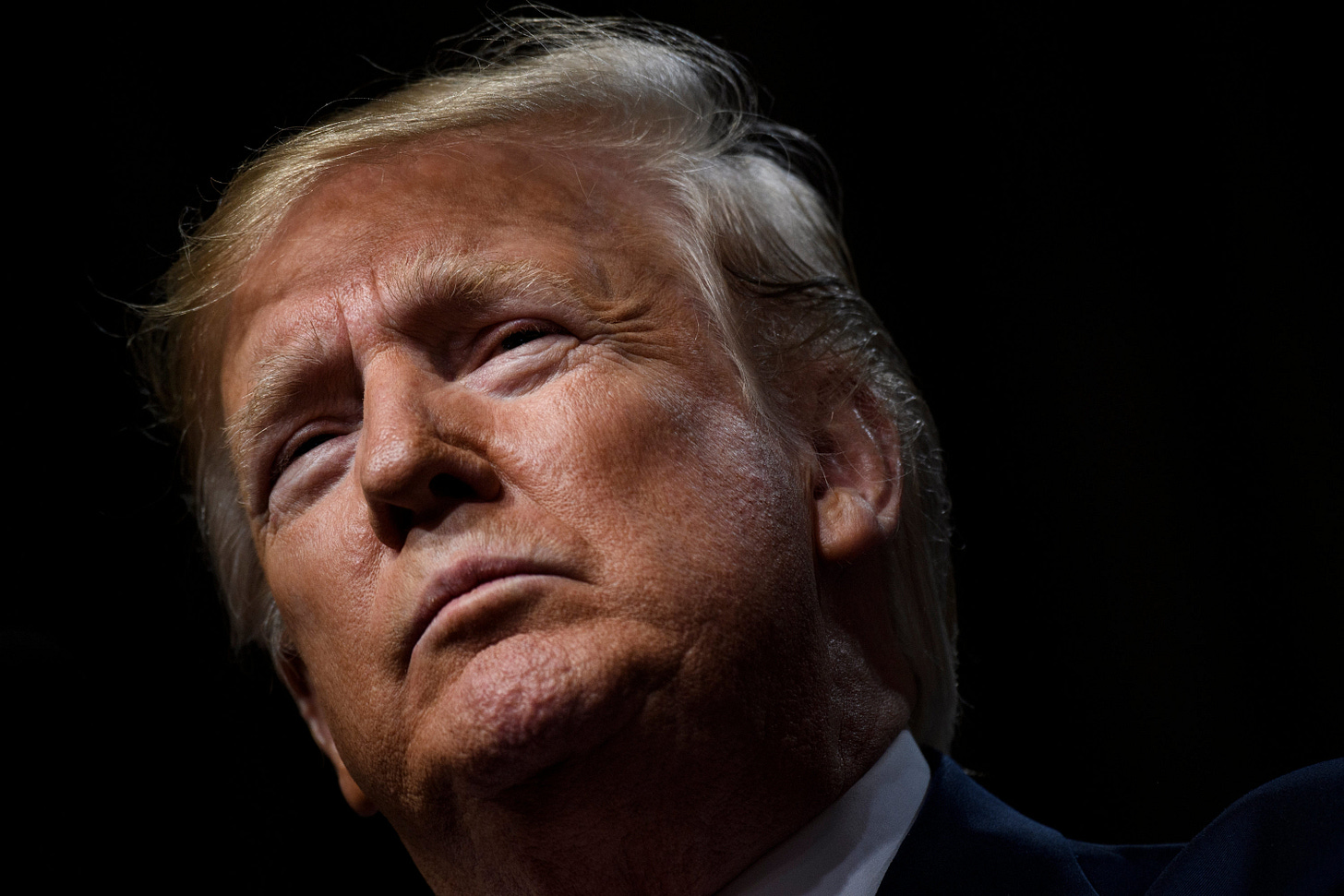A Plea to My Trump-Loving Friends
You can still love Trump. You can still vote for Trump. But just this once, see that he's wrong. Because your life might depend on it.

1. The Panic Button
This is about the moment that Mitch McConnell and congressional Republicans should be hitting the panic button. In the course of one week:
Joe Biden became the Democratic nominee
Steve Bullock entered the Montana Senate race
The stock market is about to enter bear territory
Donald Trump gave one of the most disastrously inept White House addresses, ever
Three of the last four national polls have Biden up double-digits on Trump again. And the president's job approval is heading south. Again.
This is what the world looks like on the verge of an epic wave election.
Is it possible that things will change? Sure. Things always change. Sixteen weeks from now COVID-19 will hopefully have run its course. But the economic after effects will still be cascading. And there is nothing in his history to suggest that, as the macro-environment worsens for him, Donald Trump will get better at being president.
Also: sixteen weeks from now is halfway to Election Day.
The signs are now clear: Republicans face the possibility of a realigning election. And I'm not sure there's anything they can do about it.
2. Pandemic
I don't often get angry about politics—like truly, viscerally, angry. But watching Donald Trump and his supporters talk-down the danger of COVID-19 pretty much pushed me to 11.
And the reason is this: I have a number of people in my life who are dear to me and who are super-duper Trump supporters. All of them are over the age of 60. Several of them have compromised immune systems. These are the people most at-risk for the worst of what COVID-19 can do and Trump has been gambling with their lives.
It is the single most irresponsible action I have ever seen from a politician, full stop. And my dearest wish is that my Trump-loving friends will be willing, in just this one case, to think that the president has been mistaken and that they should take their cues from other sources. They can still love him! They can still vote for him!
I just want them to be more conservative in how they protect themselves over the next 12 weeks.
There is a persistent problem in how official institutions deal with massive public dangers. The dichotomy goes like this:
From a public relations perspective, they overplay danger prospective (think about hurricane of snow-storms) and then underplay the danger as it actually manifests.
And from a real-world action perspective, they under-react in the early stages—when action might make a difference—and then overreact after-the-fact, when the horse is already out of the barn.
You can understand why this happens. You want to warn people when it's early, but then you don't want them to panic when the danger hits. And when it comes to spending resources, no one wants to output dollars on the chance of a problem manifesting. But then, after the problem hits, no one wants to be tagged for letting it happen again in the future.
But the paradigm out to be almost exactly the opposite:
From a public-relations perspective, the government should be in the business of providing a consistent message. You want to alert people, but not alarm them—and that goes through the entire crisis period, from start to finish. Alert people make good decisions. Alarmed people panic.
And from a real-world action perspective, it is much cheaper to spend money prospectively as a hedge against crisis and mitigate the damage rather than wait until the crisis is upon you and then try to spend your way out of a hole.
It seems pretty clear that our government has performed sub-optimally along both of these vectors over the last three months.
Maybe the next time, they'll do better.
3. Socialist Tears
I promise that I'll stop linking to stories like this after Bernie actually drops out:
All week, on his plane, in hold rooms backstage, Sanders would approach aides in his gruff, matter-of-fact tone to tell them, sometimes apropos of nothing at all: We’re in a fight.
Even as anxiety grew in Sanders’ Washington headquarters, the tight circle that travels around him mirrored the straightforward and laserlike focus of the candidate. Sanders is tough on his staff and prone to angry outbursts, but in pursuit of his “political revolution,” he is almost even-keeled — a temperament matched by his quiet campaign manager, Faiz Shakir. “He’s like Faiz,” communications director Mike Casca once told reporters. “He’s always at a 5 out of 10.”
But for many outside the senator’s small retinue of staff, the past week unfolded as if in slow motion, a muddle of frustration and sadness as they came to terms with what was happening. . . .
“The divide isn’t between the traveling staff and headquarters,” one progressive operative close to the operation said this week. “The divide is between reality and the candidate's head.” Read the whole thing.


